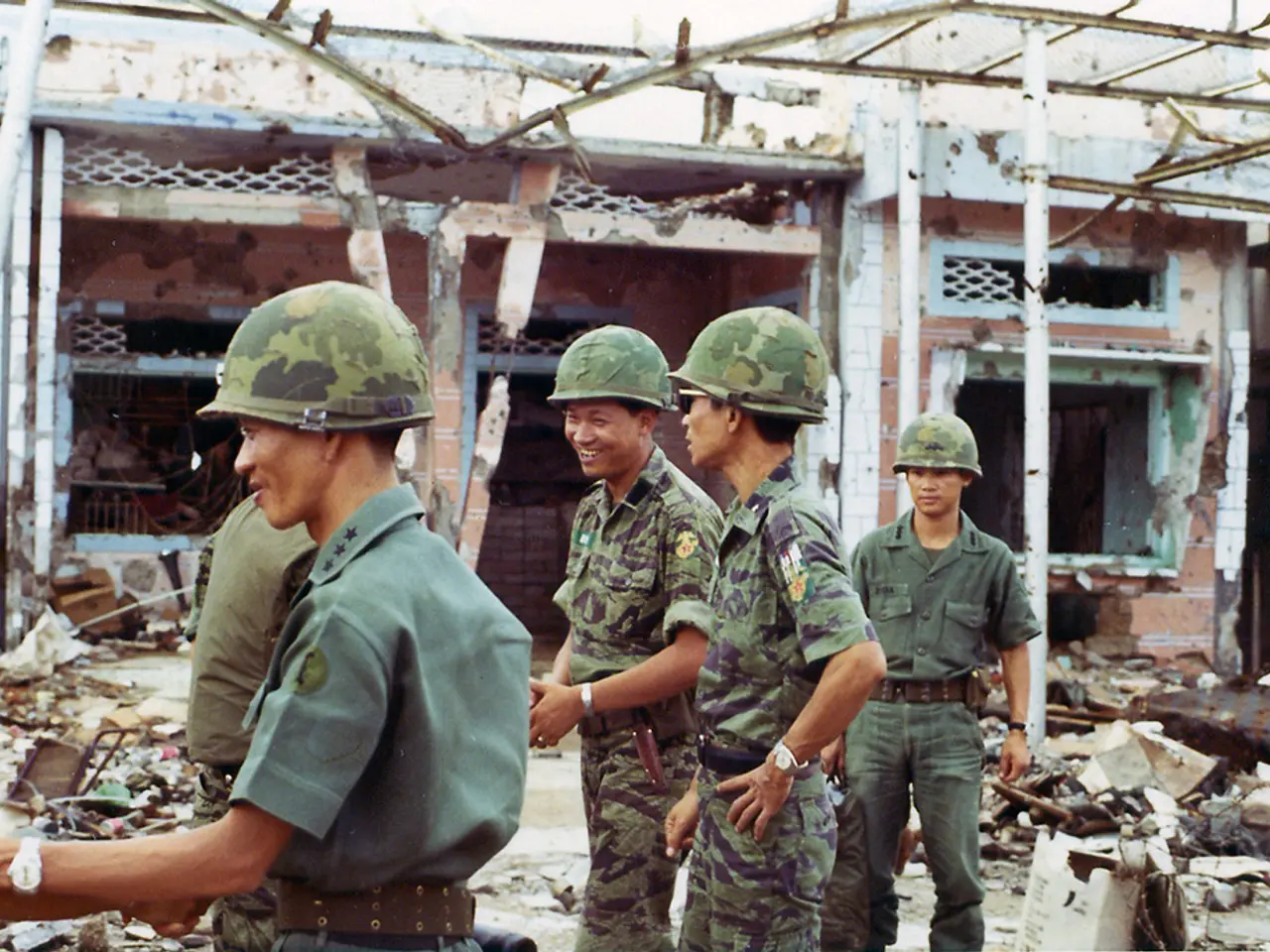Islamic State's leftover massive burial site in Iraq begins exhumation process
In a chilling discovery, a mass grave believed to be one of the largest in modern Iraqi history has been unearthed in al-Khafsa, south of Mosul. The Islamic State extremist group is believed to be responsible for this atrocity, left behind during their control of the area about a decade ago.
The claim of Khasfa being the largest mass grave comes from Iraqi lawyer Rabah Nouri Attiyah, who lost his uncle and cousin, both police officers, at the hands of IS. Attiyah, who has worked on over 70 cases of missing people in Nineveh, is among those hoping to identify and recover the remains of his lost loved ones.
Testimonies and witness statements, as well as findings from other mass graves in Nineveh, suggest that most of the military, police, and other security forces personnel killed by IS are expected to be found at Khasfa. Other victims include Yazidis and Shiite victims from Tal Afar. Numerous eyewitnesses from the area have stated they saw IS fighters bring people to Khasfa by bus and kill them.
The initial phase of the operation, which began on Aug. 9 at the request of Nineveh province's Gov. Abdulqadir al-Dakhil, is limited to gathering visible human remains and surface evidence. Local authorities, the judiciary, forensic investigations, Iraq's Martyrs' Foundation, and the directorate of mass graves are involved in the excavation of the site.
Roughly 70% of the human remains at Khasfa are believed to belong to Iraqi army and police personnel. Many of the people killed at Khasfa were reportedly decapitated.
The site, described as "a very complicated site," poses challenges due to hazardous conditions such as sulfur water and unexploded ordnance. A full exhumation is planned, but it requires international support.
Once initial excavation and DNA databasing from families of victims are complete, the authorities aim to proceed with detailed identification and exhumation processes to confirm the number of victims. However, laboratory processing and a DNA database must be established before full exhumations can proceed. After an initial 15 days of work, the foundation's Mosul teams will build a database and start collecting DNA samples from families of suspected victims.
Investigators cannot yet confirm if Khasfa is the largest mass grave, but estimate it to be one of the largest. The discovery serves as a grim reminder of the atrocities committed by IS and the ongoing efforts to uncover the truth and bring justice to the victims and their families.
Politically significant, the mass grave in al-Khafsa might rival the largest in modern Iraqi history if investigations verify the estimate, potentially influencing the general news landscape and restoring justice for victims' families amidst ongoing crime-and-justice discussions.
The current excavation process, involving multiple Iraqi authorities and organizations, aims to provide evidence linking the Islamic State extremist group to war-and-conflicts atrocities in Nineveh. A successful identification and recovery of remains could contribute to future political decisions concerning crime-and-justice policies.




